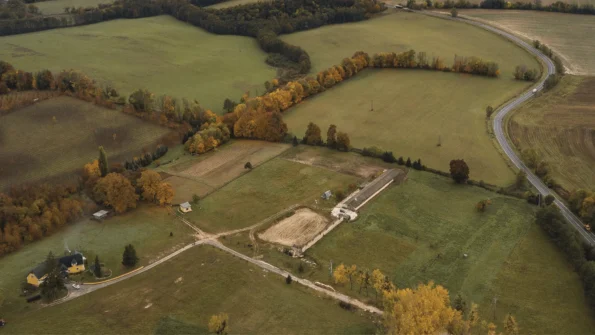A lot of people have heard and read about the Land Transfer Tax procedures in Canadian provinces like Ontario, but do not really understand how it works and what it entails. An essential guide on modalities and processes of the Canada Land Transfer Tax will help you plan your property purchase and save you costs.
Effective April 2017, a 15% non-resident speculation tax was imposed on the purchase or acquisition of an interest in residential properties owned by individuals who are not citizens or permanent residents of Canada, or by foreign corporations or entities.
The Land Transfer Tax (LTT), also referred to as Property Transfer Tax, introduced in most Canadian provinces in the 1970s, is an important and essential factor to be considered, especially for anyone looking to purchase a home in Canadian Provinces.
This is a tax payable on every transmission of land, which includes lands, homes, condos, buildings and structures, proposed structures, fixtures, etc. Land transfer tax is payable on every conveyance of land tendered for registration and every unregistered disposition of a beneficial interest in land, unless specifically exempt under the Act or regulations. (Ontario Ministry of Finance)
How much is Land Transfer Tax?
The calculation of land transfer tax is based on the value of the consideration which includes but is not limited to the purchase price of your property, the liabilities accrued, benefits conferred and other costs of the upgrade.
Each Canadian province sets and enforces its own Land Transfer Tax rates.
Toronto And Ontario Land Transfer Tax Calculation
Purchasing or acquiring real estate in Toronto and Ontario requires a little extra budget for closing expenses. Whenever there is a sale and purchase of a property in Ontario or Toronto, the buyer has to pay Ontario Land Transfer Tax or Toronto Land Transfer Tax respectively on the closing date of the said property.
While the purchase of property in Ontario province only attracts Ontario Land Transfer Tax payment, a similar action in Toronto will require payment to the Toronto Land Transfer Tax and the Municipal Land Transfer Tax.
| PURCHASE PRICE OF HOME CAD$ | MARGINAL TAX RATE (%) |
| 0 – 55,000 | 0.5 |
| 55,000.01 – 250,000 | 1.0 |
| 250,000.01 – 400,000 | 1.5 |
| 400,000.01 – 2,000,000 | 2.0 |
| OVER 2,000,000 | 2.5 |
How to Get Land Transfer Tax Rebate in Onatrio
The Land Transfer Tax rebate is available for first-time homebuyers in Ontario, Prince Edward, British Columbia, and the city of Toronto.
Ontario and Toronto first-time property buyers are entitled to a maximum of $4,000 and $4,475 Land Transfer Tax rebates respectively. The buyer has to apply for this within 18 months of purchase.
Meanwhile, in order to be eligible for this rebate, the buyer of the property or land must fulfill the following conditions:
- The buyer must be a Citizen or Permanent Resident of Canada.
- The buyer must be a minimum of 18 years of age.
- The buyer must occupy or intend to occupy the purchased home within nine months of purchase.
- The buyer must use the purchased property as their main residence.
- The buyer must not have a previously owned home or property, either locally in any Canada province, or anywhere in the world.
- The buyer must not have a spouse that owns or owned a home while being his/her spouse.
Land Transfer Tax Exemptions
An exemption or waiver can be given on Land Transfer Tax if:
- The land/property transfer is between spouses.
- The property transfer is between a person to the family business.
- The property transfer is in relation to farming property between members of a family.
Who Pays Land Transfer Tax and When?
It is unfortunate that many home buyers are unaware or not familiar with the land transfer tax. The Ontario Land Transfer Tax is paid by the buyer on the closing date of the property (when the deed of agreement or ownership is transferred in the buyer’s name).
The seller is exempted from the Land Transfer Tax. This closing date can be after the acceptance of the sales offer or when the building or construction of a new property is complete.
The Land Transfer Tax rate varies from one province to another. In most cases, this tax is paid after the buyer must have taken full possession of the purchased property from the owner or his agent. Unlike, property taxes that are paid annually, the Land Transfer Tax payment is a one-time payment.
How to Avoid the Land Transfer Tax
Some real estate specialists and investors have figured out ways to avoid paying the Land Transfer Tax, and in occasions where they cannot avoid payment, they try to minimize the impact of the land transfer tax on their investments.
However, different provincial governments in Canada are working to ensure the removal of such loopholes to ensure the collection of land transfer taxes. Whatever the case, here are a few ways people avoid the land transfer tax:
Use of Bare Trusts
One of the several methods of avoiding Land Transfer Tax is the use of Bare Trusts, that is, purchasing property solely to capture equity through the sale or transfer of the property. This works mainly in some provinces like British Columbia.
However, such a method of blocking or avoiding a land transfer tax does not exist in Ontario. This is because Ontario executes a Land Transfer Tax which applies to both legal and beneficial transfers – and which does not exempt the buyer from the payment of Land Transfer Tax.
First Time Buyer Tax Rebate
Using legal entities and trusts is another way to avoid Land Transfer Taxes. First-time buyers’ Land Transfer Tax rebates create an enabling loophole for purchasers of properties to willingly omit some facts.
The provinces of Ontario and Toronto give Land Transfer Tax rebates to first-time homebuyers, in order to offset or ease the cost of land transfer taxes.
However, such persons must be Canadian citizens or Permanent Residents and must use the property as their main residence. The rebate is based on the disclosure of the property buyer because there is no effective way to discover or confirm if such a person has a property in any foreign country or not.
Invariably, a lot of buyers claim this rebate, even when they do not qualify.












